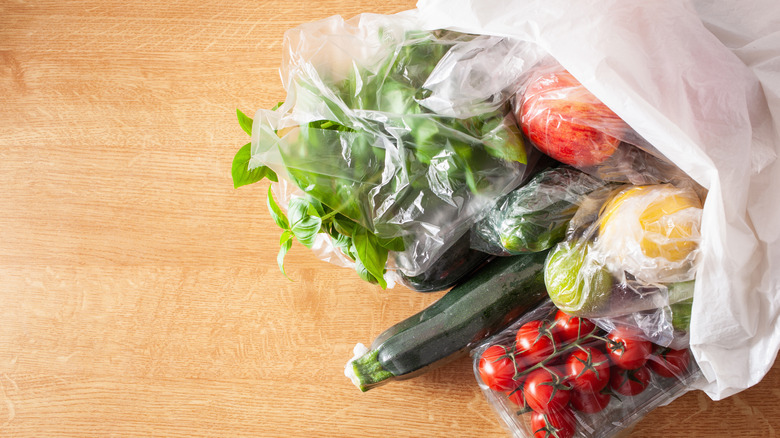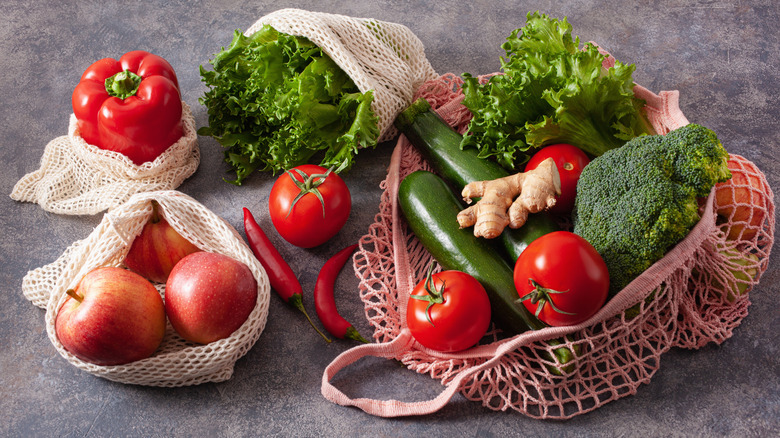Those Plastic Bags From The Grocery Store Won't Keep Your Produce Fresh
Before you even bring fresh produce home from the grocery store or farm stand, the clock is ticking. While there are strategies that can help ensure you use up your haul before it goes bad, like organizing and taking a produce inventory before you shop, it's also important to store your produce properly to ensure it stays fresh for as long as possible.
If you're hand-selecting loose items from the produce department — limes for squeezing on fish tacos, lemons for making vibrant compound butter, or baking potatoes to accompany your perfectly seared ribeye — you may reach for one of the thin plastic produce bags to keep your fruits and veggies from rolling around your grocery cart. But you should know keeping produce temporarily corralled is about all those bags are good for.
These off-the-roll disposable sacks don't actually keep your produce fresh, whether its bananas or tomatoes. While there are rare instances of produce being sold in packages ideal for keeping it fresh, like ventilated berry containers, most produce fares best if it's removed from plastic as soon as you bring it home. Keeping produce fresh longer means balancing humidity and airflow, neither of which is possible in those flimsy produce bags from the grocery store.
What are better alternatives than plastic produce bags?
Honestly, pretty much any storage solution is better than plastic produce bags. If you've ever retrieved recently purchased lettuce from a bag only to find it slimy and unappetizing, you understand why. Tender veggies like this need ventilation to stay fresh; opting to nestle your delicate produce in muslin, cotton, or linen produce bags allows for air circulation that will keep greens fresher for longer.
And produce that you store outside the refrigerator, like tomatoes and potatoes, as well as immature fruit you're allowing to ripen, must also be rescued from their plastic prisons. Leaving produce in plastic bags will retain any moisture present, accelerating spoilage. Once you've liberated your produce, give it a little breathing room, whether inside or outside your refrigerator.
Certain fruits and veggies also emit ethylene, a gas that speeds up ripening, and this is another good reason for ditching the plastic bag in favor of something ventilated. Knowing which produce ethylene (apples, tomatoes, peaches, and avocados) and those sensitive to it (apples, avocados, peaches, bananas, and broccoli) too can help you determine how to sort fruits and veggies within your refrigerator to keep them fresher longer. While plastic bags may be a convenient way to transport produce, they're not good for keeping it in peak condition.

